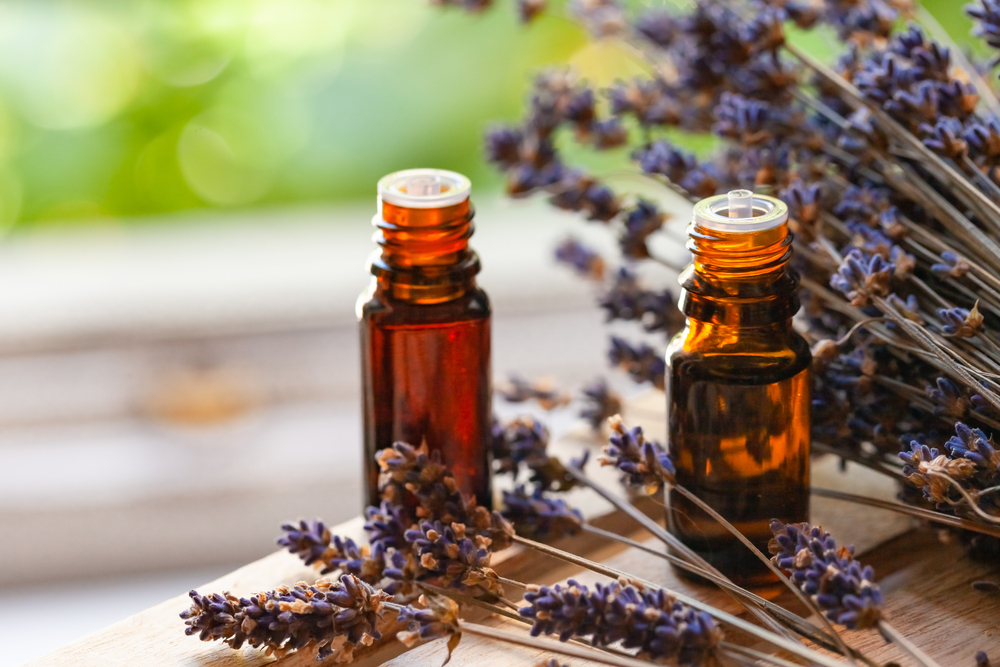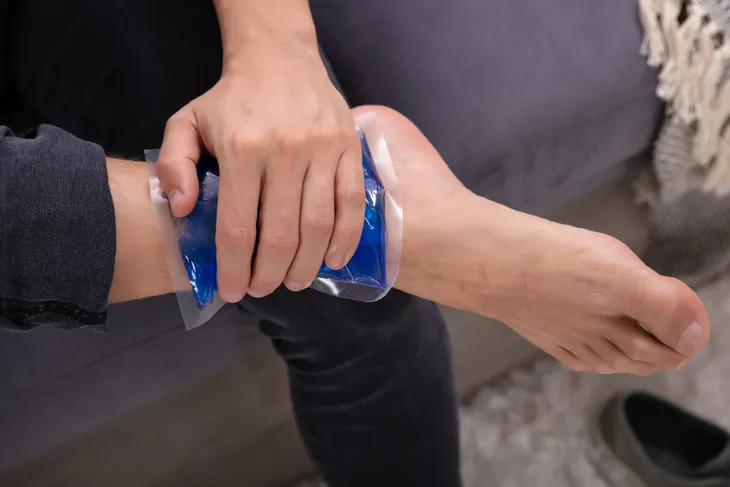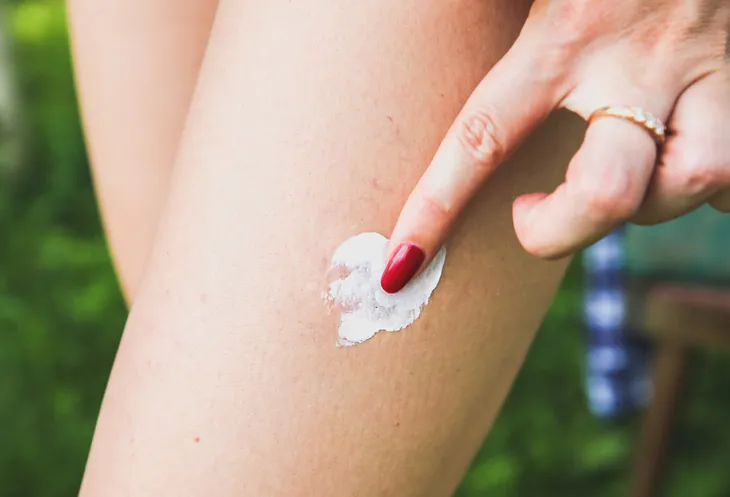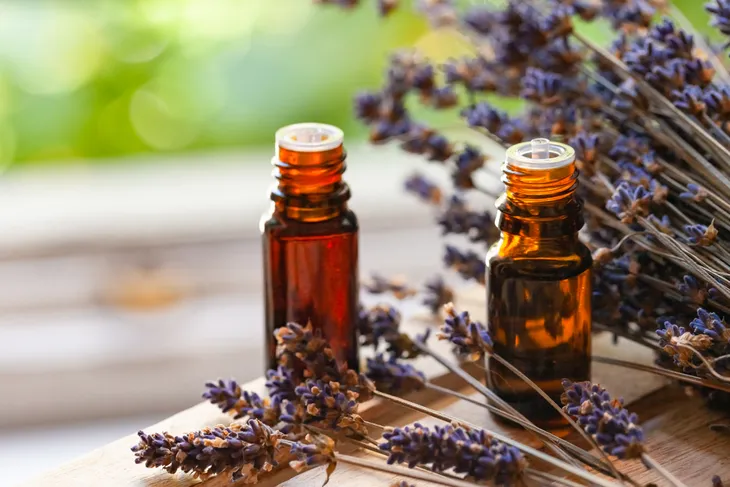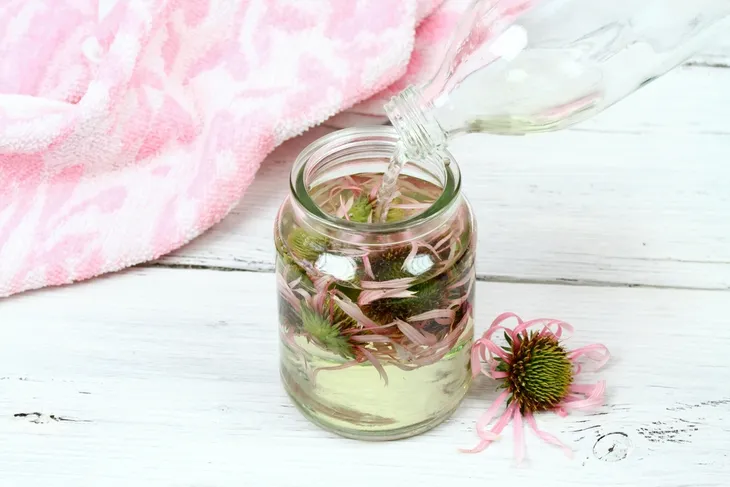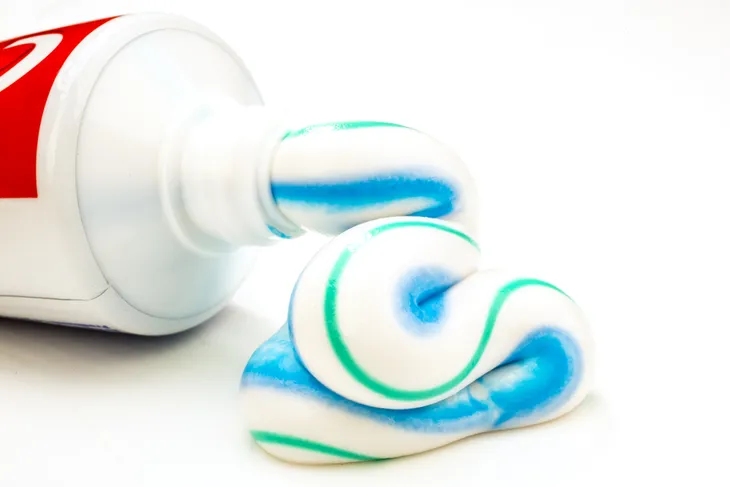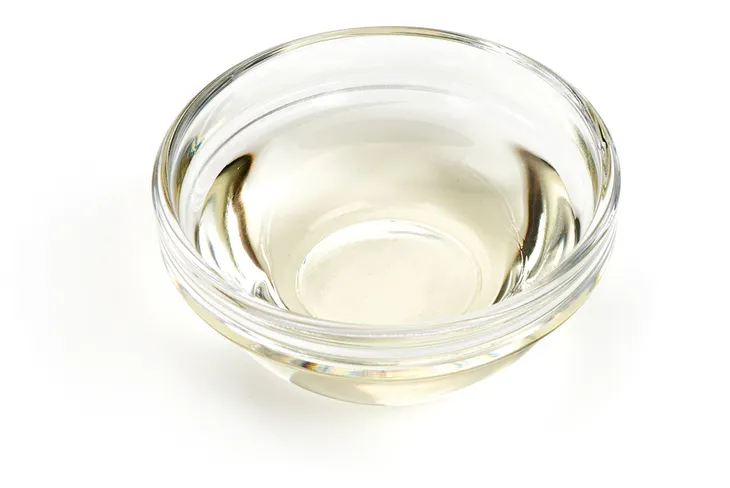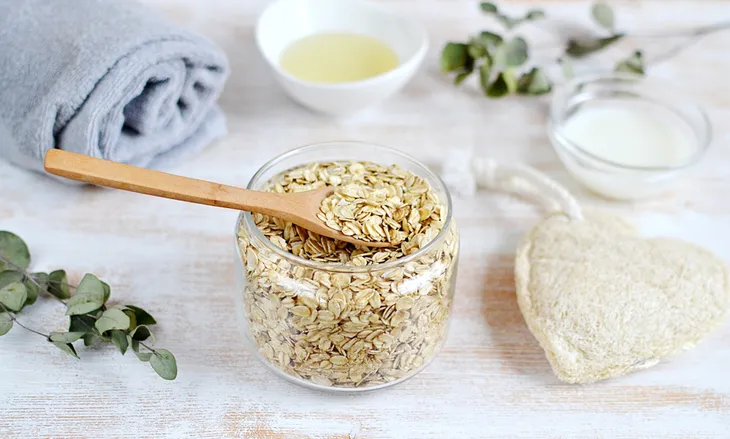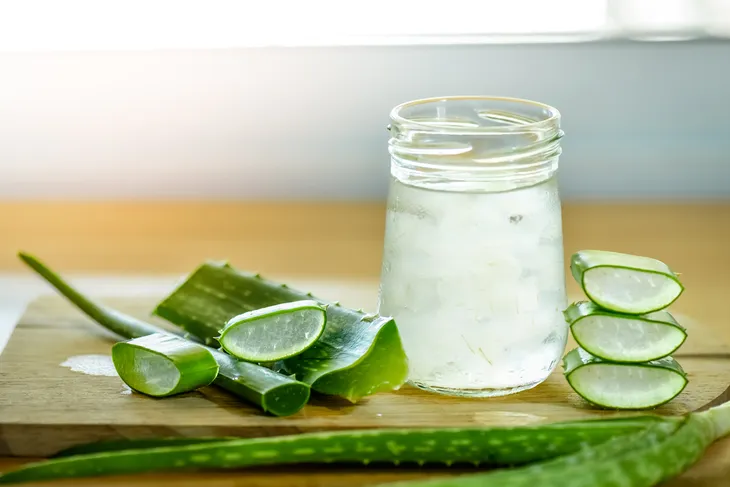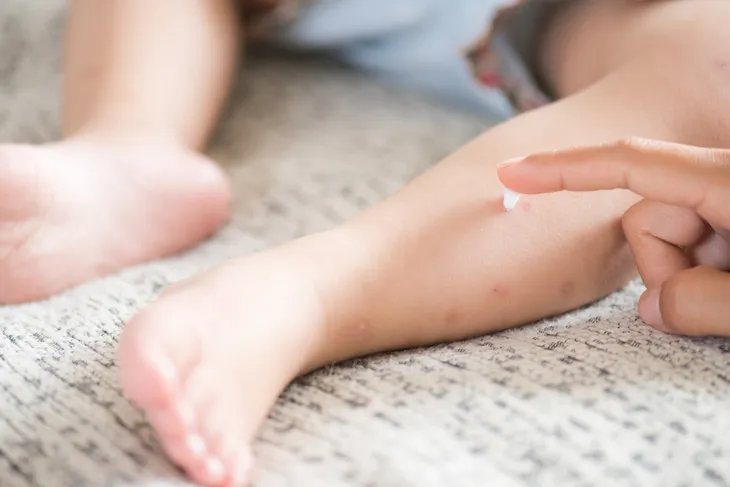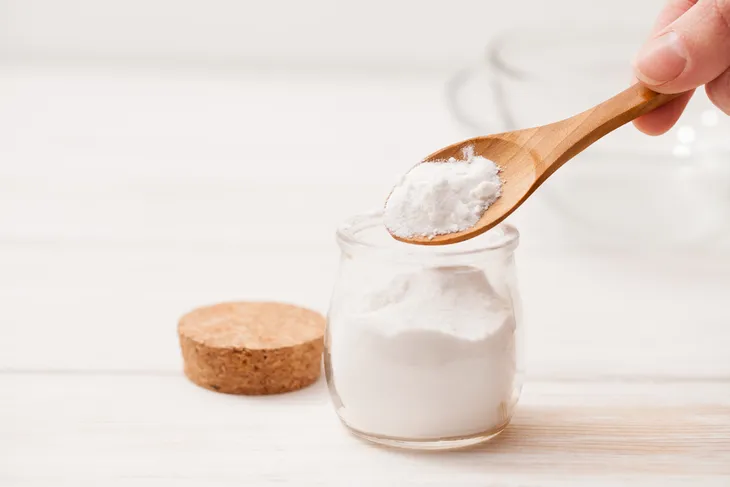Nothing can ruin a fun summer night like a swarm of biting bugs. Bugs like mosquitoes and gnats are known for causing small, itchy bumps that take can days to heal. These biting bugs usually cause a small, localized skin reaction that is a bit of a nuisance but doesn’t cause any serious issues. In some cases, bug bites can cause a more serious reaction and need to be treated by a doctor.
To help you fight the itch we’ve compiled 12 effective remedies. These treatments range from prescription medicine to natural at-home remedies. If you’ve been bitten by a bug that’s causing you to scratch take a look at our list to find one or more solutions to stop the itch.
Ice
Bug bites can cause swelling, irritation, and itching. One remedy is using ice to reduce inflammation and numb the skin. The cold causes the blood vessels under your skin to tighten up and reduce the blood flow. This causes less swelling near the bug bite. Cold also interrupts the pain signal in the body which lessens pain. By using cold you are changing what your body is feeling and instead of feeling itchy, it feels cold.
Grab an ice pack or even a frozen bag of vegetables and put it on your bug bites. Healthline recommends that you “don’t leave the ice directly on your bite for more than five minutes as it can damage the skin. You can also put a barrier, such as a washcloth, between your skin and the ice so you can leave the ice on the bite longer.”
Hydrocortisone Cream
Hydrocortisone cream is available over-the-counter or in a prescription strength. It’s a steroid lotion that soothes skin irritation and itching. It can be used on bug bites and other skin conditions. If the over-the-counter cream is not cutting the itch talk to your doctor to get a stronger prescription version.
To fight itchy bug bites with hydrocortisone cream apply a small amount on the bite up to twice a day, just enough to cover the site. Follow the directions on the label for how frequently you can reapply. Try not to use too much, hydrocortisone can have side effects. If you have any questions make sure to talk to your doctor.
Lavender Essential Oil
If you’re someone who would prefer to stay away from medications and use natural remedies for your itchy bug bites then essential oils might be your answer. Lavender essential oil not only smells amazing it is soothing to your skin. According to Dr. Melanie St. Ours, clinical herbalist from the Reader’s Digest, lavender essential oil is “renowned for its relaxing fragrance and ability to soothe inflammatory skin conditions including minor burns, wounds, and acne, lavender essential oil can help reduce itching and inflammation within minutes of application.”
To use lavender essential oil for your bug bites place one or two drops on the bite and reapply as needed. Make sure to look at the ingredient list on your essential oil bottle to ensure it doesn’t contain any surprise ingredients. Test a small area to confirm you do not have a contact allergy to the essential oil ingredients. If you experience any redness or irritation from the lavender essential oil stop using and contact your doctor.
Echinacea Tincture
Another natural remedy for itchy bug bites is echinacea tincture. It is a homemade treatment that has been used for quite a long time. The liquid extra that comes from the echinacea plant has been used to treat the common cold, sore throats, and manage infections. Using a bit of the echinacea tincture on a bug bite will reduce the swelling and redness to help heal the bite faster.
To use echinacea tincture, “apply the tincture liberally by patting it into your skin with your fingertips, using at least ¼-teaspoons per application,” says Dr. St. Ours from Reader’s Digest. If you don’t see results after 24 hours or you develop a fever the source recommends calling your doctor.
Toothpaste
Do you have an itchy mosquito bite, grab a tube of toothpaste! We know it sounds a little crazy but it’s true. Bernard Buttone, manager and associate certified entomologist at Triangle Pest Control told Reader’s Digest that a minty toothpaste that contains menthol will soothe and cool your bug bite.
If you have sensitive skin only use a small amount of toothpaste and test it on a spot on your skin. If you develop any irritation or redness then you know that toothpaste isn’t right for you. However, if all goes well then apply a thin layer over your bug bites to relieve the itch and soothe your skin.
Vinegar
People have been using vinegar for all sorts of purposes over the years, cleaning, food, and now you can add itchy bug bites to the list. Vinegar is a natural disinfectant so it makes a good remedy for bug bites that can become irritated and infected with scratching. It may not smell the most pleasant but vinegar can soothe and keep germs away.
To use vinegar for your bug bites you have two options. The first is to place a few drops of vinegar directly onto your bug bite. But if you have so many bites that applying directly will take forever then Reader’s Digest recommends drawing a lukewarm bath and adding 2-cups of vinegar to the bath. You can relax in the vinegar bath for 15- to 20-minutes. Avoid using hot water as that can actually cause your bites to become itchier.
Oatmeal
Oatmeal isn’t just for breakfast anymore. It turns out oatmeal can be a great home remedy for itchy bug bites. According to Amy Lawhorne from the Reader’s Digest, “oatmeal can relieve itching and reduce swelling, which is exactly when you need after getting bit or stung by something.” So open up your pantry, find that box of oatmeal, and let’s put it to some good use.
Using oatmeal to relieve your itchy bug bites can be done by making a paste. Place the oatmeal into a bowl and add water until you have a thick, paste-like substance. You can put that directly onto your skin or use a washcloth to apply it. Another option is to make an oatmeal bath. Put about 1-cup of oatmeal into your lukewarm bath and let your body soak in the relief.
Aloe Vera
Another remedy for bug bites is aloe vera. The aloe vera plant has been used for burns and sunburns for a long time but it also can be used for bug bites. “Aloe vera gel (mucilage), which can be obtained from the inner portion of the leaf and applied directly to the bite or sting site, has antibacterial properties, as well as having an anti-inflammatory effect due to the natural salicylates and inhibition of histamine formation” reports Reader’s Digest and Maureen Roland, RN, clinical education specialist and outreach coordinator at Banner Poison and Drug Information Center.
To use aloe vera, just take a healthy looking leaf off of the plant. Cut it open and scoop out the gel-like pulp inside. You can place that directly onto your bug bite. The aloe vera should feel cooling and minimize the itching sensation of the bite.
Antihistamine
While home remedies for itchy bug bites can be very effective, sometimes you just need medication to get the job done. The itch that comes from a bug bite is caused by a histamine reaction. The body senses the bite and kicks up the immune system to fight the invaders. This causes the redness, swelling, and itching. One way to fight this is to take an oral antihistamine medication like diphenhydramine (Benadryl).
The antihistamine will reduce your symptoms that develop because of the bug bite and make you more comfortable. But antihistamines can bring along some undesired side effects like sleepiness. There are multiple antihistamines on the market and we can’t tell you which one is best for you, only your doctor can do that. So talk to your doctor before you start a new medication to make sure it’s right for you.
Calamine Lotion
Calamine lotion is an over-the-counter topical pink cream that many people have sitting in their medicine cabinet. It’s pretty easy to find at most pharmacies and can be used for all sorts of skin irritations caused by poison ivy, poison oak, and even bug bites.
A small amount of calamine lotion can be applied to the bite several times throughout the day. You can keep applying until the itch is gone. However, if your bug bite is causing bigger issues then talk to your doctor because different treatment may be necessary.
Baking Soda
What’s one item that almost everyone has in their kitchen, baking soda. This kitchen staple is used in baking recipes, to combat the smell of your fridge, and as it turns out to fight itchy bug bites. The sodium bicarbonate, which is what makes up baking soda, can give you some relief from your bites and reduce irritation.
To use baking soda, pour a bit into a bowl and add a small amount of water to make a paste. Put the paste onto your bites and let the baking soda do its job to soothe your skin. If you find that it is causing any skin irritation or more redness remove it the paste immediately.
Basil Leaves
Basil. It’s good in pesto, on caprese salad, and a beautiful garnish. But it also contains “menthol and camphor compounds, which create a cooling sensation that helps eliminate the itch,” says Parents. So if you have this plant growing in your backyard or can pick it up at your local grocery store then you are in luck with another treatment for bug bites.
Like many of the other treatments, you are going to make a paste with the basil. Put the basil into a small bowl and crush it and add a small amount of water if necessary. Place the paste onto your bug bite and cover it with a small towel to keep it on your skin. You should feel relief from the bite and might even develop an urge to eat Italian food for dinner.
